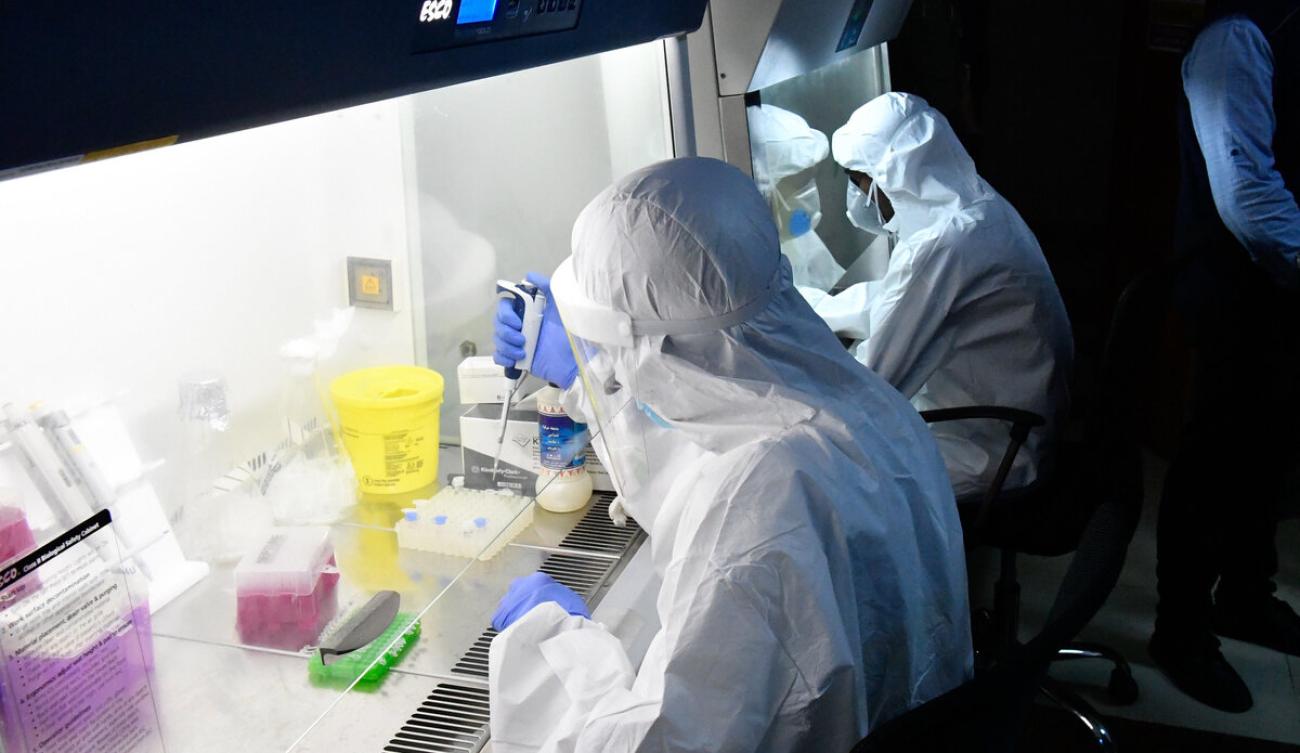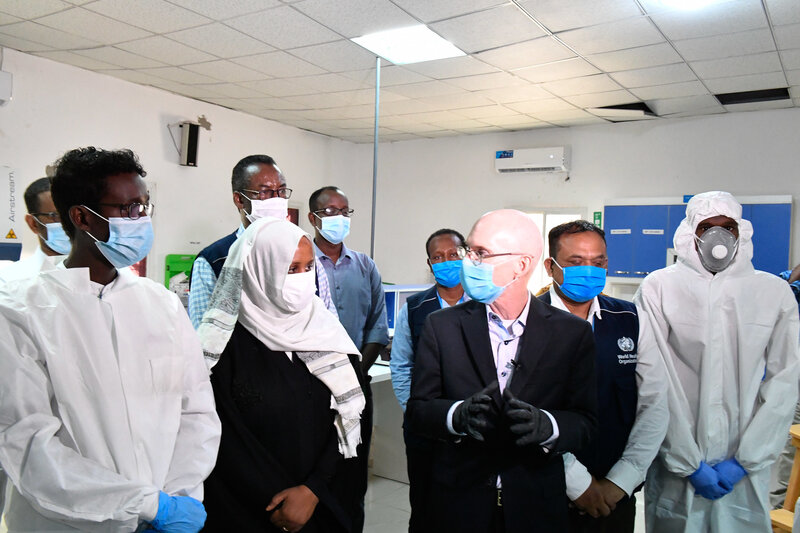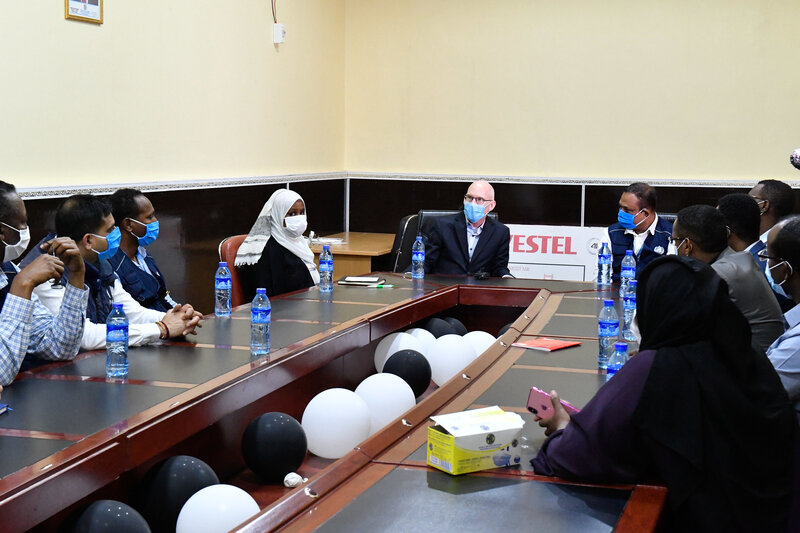On Visit To National Laboratory, UN Envoy Hails Benefits To Covid-19 Response And Somalia's Future

Progress made in testing COVID-19 samples at Somalia’s primary reference laboratory has been hailed as critical to the Somali response to the coronavirus
Mogadishu – The progress made in testing COVID-19 samples at Somalia’s primary reference laboratory has been hailed as critical to the Somali response to the coronavirus pandemic by the United Nations envoy to the country – and with an important role to play in its future.
“We are very impressed with what you have been able to accomplish here and we are honoured to be your partners. The work that you are doing on testing here is absolutely critical to the COVID response,” said the UN Secretary-General’s Special Representative to Somalia, James Swan.
The top UN official was visiting Somalia’s National Public Health Reference Laboratory (NPHRL), which has a leading role in the diagnostic testing that forms part of the country’s response to the pandemic.

After undergoing training by international experts, NPHRL staff are now testing COVID-19 samples on their own. The NPHRL started to test samples for COVID-19 in April, and can now test up to 180 samples a day. The current testing capacity can further be upgraded to 360 samples a day whenever needed. From 7 April to 23 June, the NPHRL has tested 6,572 samples for COVID-19.
The UN World Health Organization (WHO) donated a real-time Polymerase Chain Reaction (PCR)-based testing machine to the NPHRL in order to immediately capacitate it for testing COVID-19 samples. The laboratory was also rapidly upgraded to an appropriate bio-safety level with the emergence of COVID-19 in Somalia.
Testing of COVID-19 samples by real-time PCR machines is regarded by WHO as the ‘gold standard.’
Other support
Other support provided to the national laboratory by WHO includes internal quality assurance protocol and training online to ensure that standard laboratory quality assurance measures are strictly followed. The UN health agency has also provided enough testing kits and other items for testing samples until September 2020, and has also provided various other supplies.
“On 9 April, this laboratory became functional for testing COVID-19 samples. Since that time, we have supported this laboratory to become operational and also to test as many samples as possible because laboratories always play an important role for not only detection, but also play an important role for us to increase our understanding on the way the virus is circulating and how we can monitor the virus circulation in this country,” said the WHO Country Representative, Dr. Mamunur Rahman Malik, who accompanied Mr. Swan during today’s visit.
“We are really grateful for the help by WHO. We have been able to do COVID-19 testing here in Mogadishu,” said the NPHRL Director, Dr. Sahra Isse Mohamed, who showed the UN visitors around the laboratory. “Before this, we used to send COVID samples to Nairobi, at KEMRI Lab, and now we have two PCRs here in Mogadishu, one PCR in Hargeisa and one PCR in Garowe. Thanks to WHO which procured this equipment very fast, during the COVID pandemic.”
The NPHRL is the only reference laboratory for testing of COVID-19 samples collected from some of Somalia’s Federal Member States, notably Galmudug, Hirshabelle, South West State and Jubaland. WHO has also supported the establishment of two other real-time PCR-based laboratories in Garowe and Hargeisa, and is providing similar types of support in the form of laboratory equipment and consumable supplies.
Future prospects
During their visit, the officials from the world body also emphasized that the uses and benefits of the three laboratories goes beyond the current response and into the future.
“As there are future diseases, as there are future medical or pandemic requirements, you and your team at this laboratory will be able to respond,” Mr. Swan said. “So we really see this as both a short-term response – together, Somalis and the UN, and other international partners – a short-term response on COVID, but a longer-term investment and commitment to the future of this laboratory and the work you are doing on behalf of the Somali people.”
“The investment we have made on this lab is an investment for the future,” added Dr. Malik. “This laboratory will for years be able to detect any unknown and novel pathogens be it respiratory in origin, be it viral, be it bacterial in origin.”

The WHO representative also noted that, at full capacity, the NPHRL has the potential to become a reference facility for the East Africa region.
In addition to WHO, the UN World Food Programme (WFP), UN Support Office in Somalia (UNSOS) and UN Development Programme (UNDP) have provided support for the NPHRL, as have other international partners.
Link to original story.


